Spotlight on ‘Festival of Tens’ playwright Linda Saether
 The Laboratory Theater of Florida is presenting its first-ever festival of ten-minute plays this weekend. The Festival of Tens will showcase the work of five adult students who have studied with Lab Theater playwright Louise Wigglesworth for several years, vis: Melanie Payne, Candice Sanzari, Patrick Erhardt, Nancy Stetson and Linda Saether.
The Laboratory Theater of Florida is presenting its first-ever festival of ten-minute plays this weekend. The Festival of Tens will showcase the work of five adult students who have studied with Lab Theater playwright Louise Wigglesworth for several years, vis: Melanie Payne, Candice Sanzari, Patrick Erhardt, Nancy Stetson and Linda Saether.
Originally from Norway, Linda Saether is a medical doctor, former business owner, and writer who possesses screenplay, radio and playwriting credits. Intrigued by life in different historical eras, she loves to write about characters challenged by the issues of their times, and feels that it is the human factors that makes history come alive.
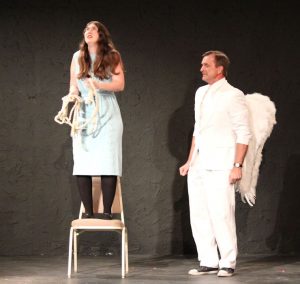 One of the epochs that especially intrigues her is Britain’s Tudor era. Not only has she researched it extensively, she even stayed once at Hever Castle with a coterie of historians, authors and other Tudor experts. And for an article she was writing, she was given access to the Pope’s reading room where she became the first individual ever to have Henry VIII’s love letters to Anne Boleyn retrieved from the Vatican archives. She even got to hold them in her own hands.
One of the epochs that especially intrigues her is Britain’s Tudor era. Not only has she researched it extensively, she even stayed once at Hever Castle with a coterie of historians, authors and other Tudor experts. And for an article she was writing, she was given access to the Pope’s reading room where she became the first individual ever to have Henry VIII’s love letters to Anne Boleyn retrieved from the Vatican archives. She even got to hold them in her own hands.
Although much of 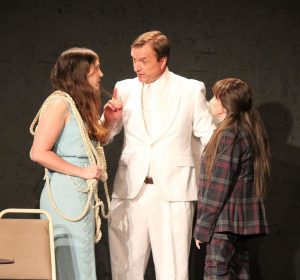 her writing is about the Tudor period, her debut novel, The Apothecary’s Niece, takes place in St. Augustine, Florida in the 1760’s, where the Hannah Stafford’s epic love story begins to unfold in the midst of upheavals that threaten her life.
her writing is about the Tudor period, her debut novel, The Apothecary’s Niece, takes place in St. Augustine, Florida in the 1760’s, where the Hannah Stafford’s epic love story begins to unfold in the midst of upheavals that threaten her life.
In 2017, Linda enjoyed a staged reading at The Lab of a developmental piece, In the Shadow of Queens, which gives voice for the very first time to two of the British Monarchy’s most interesting mothers, 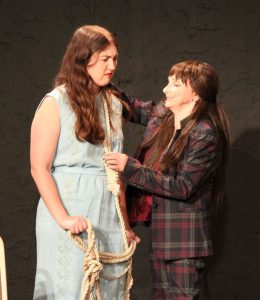 Lady Elizabeth Boleyn and Lady Margery Seymour. Through In the Shadow of Queens, their heart-wrenching stories reach through the centuries to modern-day theater-goers who are unfamiliar with their triumphs and travails.
Lady Elizabeth Boleyn and Lady Margery Seymour. Through In the Shadow of Queens, their heart-wrenching stories reach through the centuries to modern-day theater-goers who are unfamiliar with their triumphs and travails.
For the Festival of Tens, Linda contributed a piece titled Boberg’s Timer, which also addresses human challenges across the generations. A homage of sorts to Frank Capra’s classic A Wonderful Life, Boberg’s Timer features an angel who saves a young girl from committing suicide over a feckless lover not by having her look at the life she’s led so far, but by having her confront 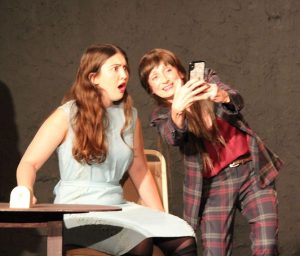 the woman and mother she will become provided she doesn’t follow through with her plans. The play’s clever emotionally-charged plot parallels the creation and popularization of the poem “O Great God” by Carl Boberg.
the woman and mother she will become provided she doesn’t follow through with her plans. The play’s clever emotionally-charged plot parallels the creation and popularization of the poem “O Great God” by Carl Boberg.
Walking home from church near Kronoback, Boberg and some friends encountered a wicked thunderstorm that descended on meadow with high winds and driving rain that drowned 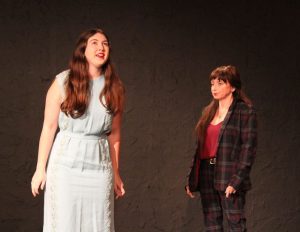 out the bells still ringing in the church. But the storm subsided just as quickly as it had struck, leaving in its wake a rainbow and peaceful calm. The poem received neither critical nor popular acclaim following its publication, but three years later, someone married Boberg’s words with a traditional Swedish melody and it became a sensation. By the 1930s, it was translated into English, tweaked and renamed
out the bells still ringing in the church. But the storm subsided just as quickly as it had struck, leaving in its wake a rainbow and peaceful calm. The poem received neither critical nor popular acclaim following its publication, but three years later, someone married Boberg’s words with a traditional Swedish melody and it became a sensation. By the 1930s, it was translated into English, tweaked and renamed 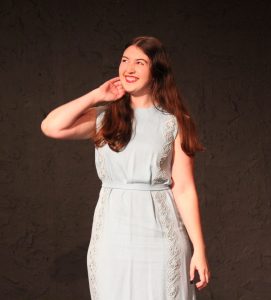 “How Great Thou Art.” It made its way to Assam, India, where Evangelist Edwin Orr heard and fell in love with it. Imported into the United States, it became the theme song for Billy Graham’s weekly radio broadcast, was named by ASCAP the “All-Time Outstanding Gospel Song” in 1978 and is now regarded as the second greatest hymn ever written (right behind “Amazing Grace”).
“How Great Thou Art.” It made its way to Assam, India, where Evangelist Edwin Orr heard and fell in love with it. Imported into the United States, it became the theme song for Billy Graham’s weekly radio broadcast, was named by ASCAP the “All-Time Outstanding Gospel Song” in 1978 and is now regarded as the second greatest hymn ever written (right behind “Amazing Grace”).
So whether you’re a humble Swedish sailor turned lay-minister, despondent jilted lover or someone else who’s down on their luck and sees no way out, life may just very well have great things in 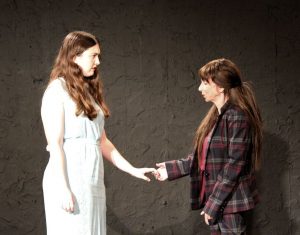 store for you and your fellow man if you just soldier through. And while it may not seem like it at the time, peace, tranquility and even a rainbow come in the aftermath of even the most violent storms.
store for you and your fellow man if you just soldier through. And while it may not seem like it at the time, peace, tranquility and even a rainbow come in the aftermath of even the most violent storms.
Boberg’s Timer is actually a shorter version of a longer play Linda wrote while in a writer’s group at Lab Theater under the superb guidance of Louise Wigglesworth. Although currently writing a novel taking place in the Tudor  era, Linda always has another play in the works.
era, Linda always has another play in the works.
Linda recalls wanting to be a writer from the time her middle school teachers read her essays out loud and her classmates surprised her by asking for more. Although she’s never stopped writing, raising a family and working in medicine was her world for many years.
Festival 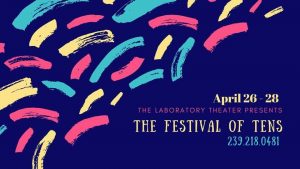 of Tens performance will be at 8:00 p.m. tonight and on April 27 and at 2:00 p.m. on Sunday, April 28. Tickets are available to purchase on Brownpapertickets.com or by calling the box office at 239-218-0481.
of Tens performance will be at 8:00 p.m. tonight and on April 27 and at 2:00 p.m. on Sunday, April 28. Tickets are available to purchase on Brownpapertickets.com or by calling the box office at 239-218-0481.
April 26, 2019.














 Tom Hall is both an amateur artist and aspiring novelist who writes art quest thrillers. He is in the final stages of completing his debut novel titled "Art Detective," a story that fictionalizes the discovery of the fabled billion-dollar Impressionist collection of Parisian art dealer Josse Bernheim-Jeune, thought by many to have perished during World War II when the collection's hiding place, Castle de Rastignac in southern France, was destroyed by the Wehrmacht in reprisal for attacks made by members of the Resistance operating in the area. A former tax attorney, Tom holds a bachelor's degree as well as both a juris doctorate and masters of laws in taxation from the University of Florida. Tom lives in Estero, Florida with his fiancee, Connie, and their four cats.
Tom Hall is both an amateur artist and aspiring novelist who writes art quest thrillers. He is in the final stages of completing his debut novel titled "Art Detective," a story that fictionalizes the discovery of the fabled billion-dollar Impressionist collection of Parisian art dealer Josse Bernheim-Jeune, thought by many to have perished during World War II when the collection's hiding place, Castle de Rastignac in southern France, was destroyed by the Wehrmacht in reprisal for attacks made by members of the Resistance operating in the area. A former tax attorney, Tom holds a bachelor's degree as well as both a juris doctorate and masters of laws in taxation from the University of Florida. Tom lives in Estero, Florida with his fiancee, Connie, and their four cats.